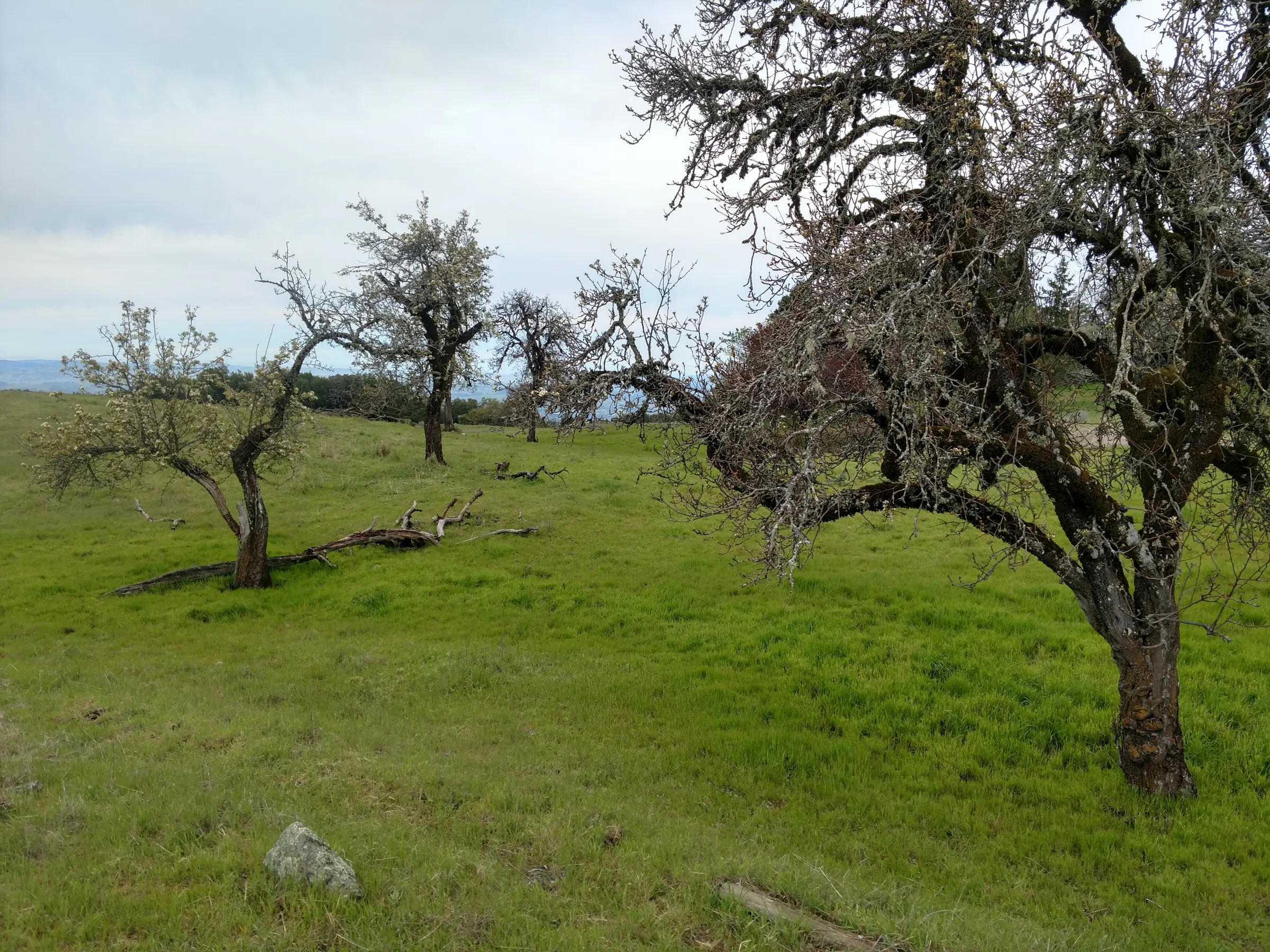Both the left and the right get it wrong on this issue. No surprise there. The left thinks that a tax can fix this whole global warming thing. No problem. However, ninety-five percent of the people in the world are housed, fed, transported, etc., by a market system. If we want to successfully slurp up carbon, shouldn’t we do it with a market, the same way we get everything else done is this world? Carbon taxes deal with the demand side of carbon emissions but do nothing to increase the supply of carbon sequestration. So they are half markets, which like half babies, are no markets at all.
On the other side, the right acts as though government action is irrelevant to a market-based approach. Having traveled through Africa, I think we are spoiled by a government system that works so well. If you disagree, show me a system that works better. Conservatives ignore the problem of climate change because they think they don’t like the solution. Wouldn’t it be better to come up with a conservative solution? Governments have a very small, but critically important role in the workings of any market.
Two examples from the business world highlight the stupidity of using a carbon tax (or cap and trade system which has the same problems) to deal with this issue. First, take the solid waste industry, firms like BFI and Waste Management. Trash collectors. Our carbon problem is essentially a shortage of carbon disposal firms, so we should look to these businesses for models. If we disposed of solid waste the way we propose to dispose of carbon, we would say that you must pay a “trash tax” in proportion to how much trash you generated. That money would go into the government’s general fund. Then you just dump your trash. On the side of the road? Sure, if that’s easiest. In the ocean? Perfect. In a wet, smoldering fire in your backyard? Yes, but only if you pay your trash tax!
Imagine how high that trash tax would have to be to keep the roads as clean as they are now. In other words, that would be an extremely inefficient way of disposing of trash. Think about how much would it cost for the government to then clean up that trash picking up every piece of plastic blowing in the wind, versus our current system. Voters would never approve a tax that high, so the trash tax would have to just be low enough that people tolerated it, in other words, low enough that it wouldn’t affect people’s behavior.
Interestingly, if we were to take the right’s thinking about carbon and apply it to solid waste disposal, the end result would be largely the same. The government does nothing. We just pretend that we don’t care if there are big trash drifts accumulating in our front yard. Neither solution is going to work. You just decide if you want the government to get more money or less money.
In solid waste disposal, the government does not (generally) get paid the money nor does it collect the trash. But the government does have the important role of mandating that, if you generate trash, you dispose of it through approved channels. The governments make sure that people don’t violate those rules and they regulate the facilities that do the disposing. Without the mandate that everyone disposes of their trash properly, there is no incentive for anyone to collect the trash and solid waste disposal firms have no business.
Since our reforms of the solid waste disposal system worked out so well, I have another modest proposal for you. Instead of a housing market, we levy a “Home Tax,” then everyone who pays the home tax is entitled to go out and take a home. The money for the home tax, again, goes into the state or federal government’s general fund. Imagine if you were a home builder, a landlord, or you were just looking at the prospect of maintaining your home. The supply of homes would contract dramatically.
‘The government’ is critical in creating the housing market not by building or selling houses, but by insisting that if you want a house, you pay a seller enough that they willingly sign it over to you. If someone tries to take a house through some other means that it is the government that will intervene.
So, a true carbon market would be an interaction between people like you and me that want to emit greenhouse gases, and firms with the ability to actually absorb some mandated percentage of that CO2. The government is involved by mandating, and by enforcing the mandate. The government makes sure that the carbon is actually being stored and prosecutes cheaters. But the government does not take the money.
The money can only be used to buy carbon that has been verified to have been actually removed from the atmosphere. There seem to be technological processes in the works right now to do that and if those ever end up working then they will have a role in this process. I don’t know anything about those. I only know about ecological ways of sucking carbon out of the atmosphere, using vegetation and soils, so those are the ones I will talk about.
For this to work, this money cannot be used to put solar panels on roofs or insulate houses, as HB 4001 proposes to do. If someone wants to pick up trash or house the homeless, that’s great but they can’t steal from BFI or Toll Brothers to do it. With a true carbon market, people put up solar panels and insulate because they don’t want to pay the carbon disposal fee. Or they spend their money on something else that solves the problem more efficiently. That is the beautiful wiggly way that natural things work.
Creating this market would create a special interest. This special interest would be dedicated to making sure that governments mandate that carbon is disposed of properly and that those rules were enforced. They would be a counterbalance to fossil fuel businesses, which also do a good job at solving a particular problem, but have their own special interest. They want to make sure that carbon disposal costs are as low as possible.
Interestingly, these ‘carbon disposal’ firms would be in red congressional districts because this system would in effect be a massive ‘redistribution’ of wealth from blue urban districts to red rural districts because that is where the trees and soil are that pull carbon out of the air.
Now it’s time for the full disclosure portion of this blog post. As property owners in Western Oregon, we would be part of that special interest. But we are no more evil than home builders and landlords. Despite what you might hear in San Francisco, those people are trying to fill a need, they are the ones that actually keep the majority of us from being homeless. Western Oregon pulls CO2 out of the air and turns it into vegetation and soil, as easy as falling out of bed. If the state of Oregon creates a carbon tax and ignores its own unfair advantage in the carbon market, where does that leave agricultural and forest producers like us? We become like home builders in a place that has dissolved private property rights, where carbon is only sequestered by accident or charity.
Almanac
The Almanac section is where I do something that is not natural, at least not for me. I step away from the big ideas and talk details about what is happening on the ground. This time of year is becoming very busy, especially now that Hanna and I have bought the ranch in Oregon. We have abandoned Byron and Ben to deal with the cattle in California. Peace out guys. Good luck.
Both this year and last year have been very late seasons in California. We had an amazing 4 inches of rain in the first week of April, unusual for us. We even had good rain on the 15th of April. With temperatures in the eighties this weekend, we should see a ton of growth. At least for a few days, at least where we have maintained good grazing pressure. It has been a great year for clover, which I have heard other people say happens when you have a dry spell in the middle of winter. I don’t know if that is because when it is dry it is warm and clover likes warmer conditions, or when it is dry cattle are able to stay on top of the grass, and clover likes short grass conditions. Any other thoughts? For the last month, the cattle have been eating a lot of brush, coyote bush poison oak. Is the rest of you Sonoma county grazers seeing that too?
A big hurdle for any grass-based livestock businesses in higher production environments is that we grow 75% of our grass in probably two weeks of the season. Yet we have to keep the animals for six months and… Oops, I was about to go all picture again.
Anyway, in contrast to last year, this year has been a pretty dry year in Oregon, which up here is a good thing. When I was here ten days ago the grass looked fantastic which was a big relief. I can’t lie, last year was hard. The first year of a new business, no matter what there was going to be heartache. Add to it the fact that it was not a great year for grazing up here. I was relieved to see eight-inch high ryegrass on what Hanna and I dubbed ‘the golf course.’ The previous owners had sheep that would just eat the grass down to dirt on the higher ground. It was stunted, probably had a hardpan limiting root growth. I knew it would recover if we did the right thing. But it is hard to maintain faith since humans operate on different timescales than many things in the ecosystem.
But I didn’t get in until sunset last night and the water looked very high. Cattle are supposed to arrive tomorrow. Updates to follow next week.

